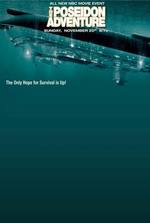The vast majority of execs I’ve worked with in TV and publishing during my career have been terrific people who I count as friends. But I’ve had several situations in recent years where I’ve caught a few executives lying about me or the work that I’ve done. When I’ve confronted them with their dishonesty, they freely admitted it without shame or apology.
In one case, I accidentally found out about some damaging untruths about me from a friend and quickly contradicted the story, figuring there had been some unfortunate, but innocent, mis-understanding somewhere along the line. It never occurred to me that the exec I was working with had intentionally lied about me…until I heard from him.
"Why did you tell X the truth?" he demanded.
"Because someone gave X the impression that I’d fucked up."
"That was me," he yelled.
I was astonished.
"But I didn’t fuck up," I said. "I’ve never done anything like that."
"I know."
"Then why did you tell X that I did?"
"Because I was the one who fucked up," he said. "Now you’ve made me look like a liar!"
"You are!" I yelled back.
"They don’t have to know that," he said.
"You lied about me to hide your own fuck-up. You made yourself look good and me look bad."
"So? You should have gone along with it," he said. "You’ve deeply hurt my feelings."
No matter how much I tried to explain that it was his fault, and that the injured party was me, he just couldn’t (or wouldn’t) understand. Nor did he seem to care about the damage he’d caused to our business relationship.
In another case, an executive told me how happy he was with my work writing/producing a TV series, how much he loved being in business with me, and how he hoped we’d enjoy a long professional relationship together. Which would be nice, except that I knew for a fact that earlier that same day he’d told another producer how much he hated me and offered him my job for the following season. What the exec didn’t know was that the producer was an old friend of mine and immediately called me.
When I confronted the exec with this, he simply said "So what? That’s business. Grow up."
Another exec we worked with took credit with the network, right in front of us (and in conference calls), for creating and developing stories and scripts he not only didn’t come up with or work on, but that he didn’t even see until roughly the same moment the network did.
We never confronted him about this, nor revealed it to the network of course, because it would have made him and the show (and us) look bad. But the exec had no problem whatsoever lying to our faces or, apparently, any fear that we’d contradict him. I guess he was right on that score. I didn’t know how he could do it without feeling deeply embarrassed and ashamed every time he saw us. That said, we are team players and we thought that establishing that was more important to us and our careers than speaking up to him or anyone else. In the end, this came back to haunt us, but if we had it to do over again, even knowing what I know now, we’d make the same choice.
Lying isn’t new…but I think the complete lack of shame some execs are showing when they get caught in the act is a new wrinkle. I mean, they aren’t even bothering to make excuses or dodge blame or cover up…
Hmm. Come to think of it, I may have discovered a new kind of honesty: being honest about your dishonesty. Pretty soon, if we aren’t vigilant, that may become the new definition of integrity in Hollywood…





